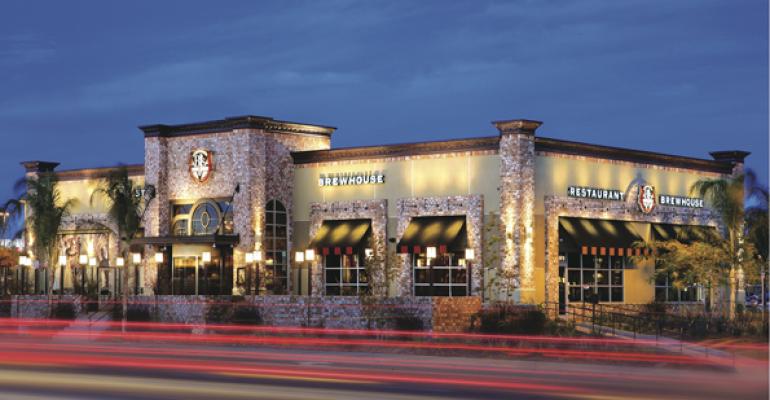 This post is part of the On the Margin blog.
This post is part of the On the Margin blog.
KeyBanc Capital Markets Analyst Chris O’Cull, in a note this weekend, said that Darden Restaurants Inc. should consider buying BJ’s Restaurants Inc., saying that a deal would be an advantage to both companies.
Such an idea seems odd, considering that Darden already operates seven chains and only recently beat back suggestions that it should spin off some concepts.
The proposal shows that Wall Street has shifted away from that idea. But it is also indicative of the current industry environment, where numerous chains are struggling to generate positive sales, hurting their valuations and setting up potential acquisition scenarios.
As I said last week, 2017 seems poised to be a big year for public company mergers and acquisitions, both for go-private deals and for potential initial public offerings.
Casual dining chains in particular have struggled to generate same-store sales growth, and that challenge could lead some companies to abandon the public markets, or seek the protection of larger companies.
BJ’s is one such example. The company’s same-store sales fell 3.4 percent in the quarter ended Sept. 27 — executives there somewhat famously blamed the presidential election for consumer weakness.
It also opted to slow development while it worked on reinvigorating its same-store sales.
Weak same-store sales have taken its toll on the company’s stock price, which has fallen by a third over the past two years.
BJ’s “has limited operational and financial resources to open more new restaurants, despite the new unit returns justifying further development, while trying to reverse a negative [same-store sales] trend,” O’Cull wrote.
Darden could fix that. The Orlando-based casual dining operator certainly has the resources to continue opening new restaurants while still working to improve sales and profits at existing units. “Darden has advantages in advertising, supply chain and real estate that could enhance BJ’s concept return,” O’Cull wrote.
The question is a little trickier for Darden, given the company’s recent history involving activist investors and its already-large portfolio of brands. Those brands include concepts like Yard House that still have plenty of growth runway.
O’Cull wrote that Darden could pay $45 per share for BJ’s, a 30-percent premium. The combined company would add value to the company, both in earnings and in helping the company meet its annual sales growth targets.
Darden, O’Cull wrote, has struggled to meet those sales growth targets recent. “A growth concept, like BJ’s Restaurants, could provide meaningful contribution from new store openings,” O’Cull wrote.
For what it’s worth, O’Cull wouldn’t predict that Darden would buy BJ’s, saying only that such a deal would make sense for both companies.
Darden does have a long history of growing through acquisitions. That includes its 2007 acquisition of RARE Hospitality, a major deal that brought to the company Gene Lee, who would go on to become Darden CEO in 2014.
Darden’s last acquisition was its 2012 purchase of Yard House. The company has since worked to shed some assets. It sold Red Lobster to Golden Gate Capital in 2014, amid activist pressure, and it spun off its real estate in 2015.
In December, another analyst asked Lee whether the company would consider adding another concept, either through acquisition or through development.
Lee said the company is “not in the active business of developing our own concepts today.” He was non-committal on the idea of an acquisition, saying, “we’ll continue to have these conversations with our board and we’ll figure out what’s the right decision to build long-term shareholder value.”
Jonathan Maze, Nation’s Restaurant News senior financial editor, does not directly own stock or interest in a restaurant company.
Contact Jonathan Maze at [email protected]
Follow him on Twitter at @jonathanmaze





